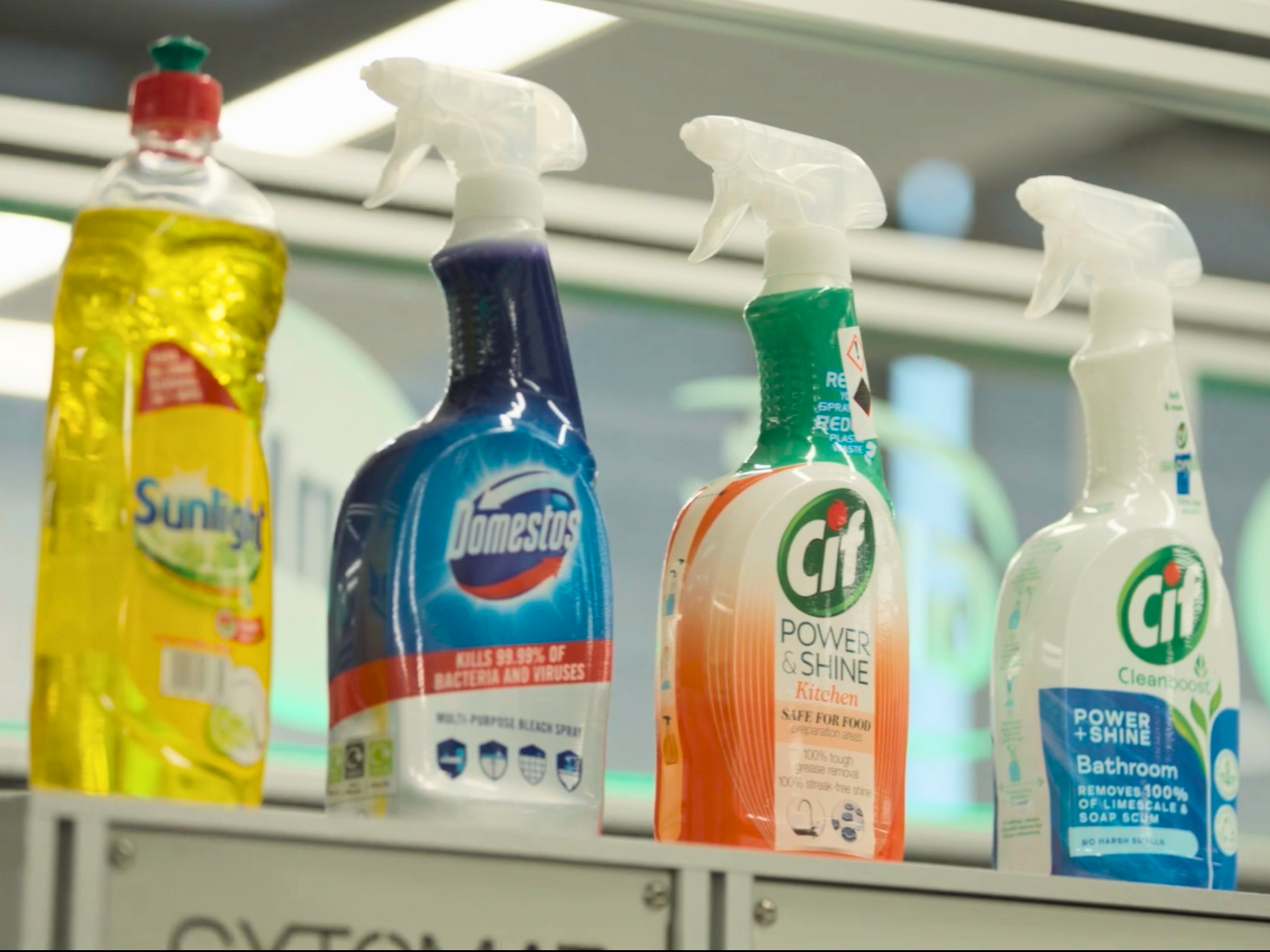Unilever Bets Millions to Develop Zero-Waste Plant-Based Oils for Cleaning Products
4 Mins Read
Unilever has partnered with biotech firm Nufarm to produce oil from the entire sugarcane plant and replace fossil fuels from its laundry and beauty products.
From laundry detergents to soaps, most cleaning products contain surfactants derived from petroleum feedstocks, enlarging their impact on the environment. Fossil fuels, of course, represent the most polluting industry on the planet, and a shift away from them is critical to the fight against the climate crisis.
It’s why in 2020, Unilever decided to eliminate fossil fuels from its cleaning products by 2030. One of the world’s largest CPG companies, it explained that chemicals used in these offerings make up nearly half (46%) of its overall carbon footprint, and replacing them with plant- and algae-derived ingredients will lower its climate impact by 20%.
In a further step towards that goal, the parent company of Domestos, Persil, Sif and Comfort has now invested millions of euros in a project to create “biomass oils” sourced not just from the seeds and fruits of plants (as is typical), but also the leaves, stems and other parts.
It has partnered with Australian agtech Nufarm to develop and commercialise a sugarcane crop with significantly greater biomass, which can be turned into fatty acids that form the base of Unilever’s laundry detergents and beauty and personal care products.
Biomass oil is industry’s biggest ‘challenge and opportunity’

Nufarm’s technology can enable the production of oil using the entire plant in crops like cane and sorghum. It has previously created and brought to market a sugarcane variety called energy cane, which generates much more plant matter and sugar than the traditional crop.
In its current form, energy cane has several sustainability benefits, including climate stress tolerance, drought resistance, and more efficient soil protection against erosion.
Unilever’s investment aims to replicate and build on these traits using recent biotech breakthroughs to develop a new, commercially viable variety of energy cane that can produce biomass oil, as well as contribute to its goals of reducing emissions from ingredient sourcing.
“We can take existing, high-biomass crops, and dramatically increase the amount of oil that can be produced in their leaves, and turn them into oil factories,” explained Brent Zacharias, group executive at Nufarm.
“This technology and associated know-how enhance Nufarm’s novel, sustainable and scalable oils strategy in high biomass crops like energy cane and forage sorghum and provide new transformational oils platform potential,” said Nufarm CEO Greg Hunt, who suggested that this represents both the “challenge and opportunity” of the century for the agriculture industry.
According to Unilever, if successfully grown at scale, it would be the first time a biomass crop has been optimised to produce a plant-based oil. This would then be leveraged as an ingredient across its beauty, personal care and home care portfolio, which together made up 65% of its turnover in 2023.
Project looks to support net-zero goal amid shift in ESG focus
“We’re trying to aim for this plant to be very sustainable, producing more than one ingredient. So it’s going to be more efficient,” noted Neil Parry, Unilever’s head of biotechnology.
The plan is for no parts of the crop to go to waste – in addition to the biomass oil, it can also continue to produce sugar that can be used in biotechnology processes to make fragrances, enzymes and speciality cleaning ingredients. Unilever will also explore how it could use the leftover plant fibre for paper and board in packaging and for renewable energy production.
“Biotechnology is evolving at a rapid pace. What we’re now going to start seeing in the next decade is more translation of the ideas and capability into scalable, translatable, commercial materials that are going to benefit both society and industry,” Parry suggested.
Raw materials and ingredients are the largest source of Unilever’s greenhouse gas emissions, making up 52% of its total footprint. “The partnership with Nufarm enables us to identify alternative ingredients for our household, beauty and personal care brands which will further support our ambition to reach net zero emissions across our value chain by 2039,” he said.
But that net-zero commitment has been criticised for being too vague and hard to measure, and despite being viewed as an ESG leader, Unilever has been facing further backlash after abandoning several of its key sustainability goals. For example, it delayed its targets to make 100% of its plastic packaging reusable, recyclable or compostable by 2025, and changed the goal of halving virgin plastic use by 2025 to reducing it by a third by 2026.
It has additionally dropped a pledge to make 100% of ingredients biodegradable by 2030, and lowered its aim of sourcing 100% of key crops sustainably to 95%. The promise to protect and regenerate 1.5 million hectares of land, forests and oceans by 2030, meanwhile, has been slashed to a million hectares.
These changes came amid a backdrop of investor, shareholder and political criticism that non-financial objectives were distracting the company from its commercial targets. The company is now overhauling its business by getting rid of a number of brands and focusing on the biggest money-makers – this week alone, it was reported that Unilever has put meat-free producer The Vegetarian Butcher up for sale.



